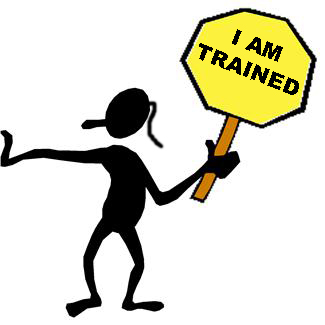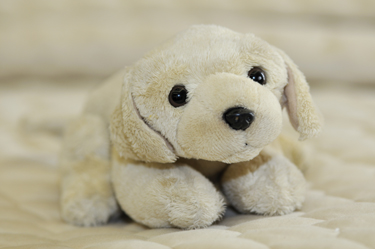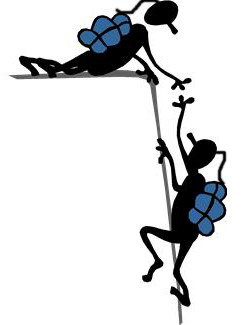The Gender Issue: How We As Women See Ourselves And 7 Action Steps
THE GENDER ISSUE: HOW WE AS WOMEN SEE OURSELVES (INCLUDES 7 ACTION STEPS) (ISSUE 68)
By Diane Gold
 The gender issue is alive and well all over the world. There are many sides to it and hurdles we can turn to our advantage. I just read in Wikipedia,
The gender issue is alive and well all over the world. There are many sides to it and hurdles we can turn to our advantage. I just read in Wikipedia,
“Professional women are still responsible for domestic labor and child care.”
I just sent an email to wikipedia.org that it is supposed to read,
“Often, even in 2013, professional women take responsibility upon themselves for domestic labor and child care, even though they work. They fail to create shared effort with their partners who may fail to see or correct the imbalance of duties. ”
This example, from a 2013-edited open source reference tool. used 2500 times per second for a total of 7 billion visits per month, gives us a clear understanding of how misconceptions, falsities, mistakes are spread.
In general, would someone born in 1970 or before describe women as sensitive, soft and knowledgeable about design, clothing and fashion?
In general, would someone born in 1970 or before describe men as strong, mechanical and able to cope with life’s decisions?
These descriptions are examples of stereotypes created about gender. The children of the people born in 1970 heard these stereotypes and saw many of their parents living them. Stereotypes can ruin lives if we cling to them and let them take over. We can all use a dose of the age old philosophy,
“If it doesn’t apply, let it fly,”
but, what’s tough about this one is that many of us may be confused as to whether a stereotype applies, and this confusion can drag us down.
Sheryl Sandberg, COO of Facebook, author of Lean In, writes about how women are still not equal and how women may be holding themselves back.
___
When we buy into The Gender Issue, meaning we believe we are inferior or we don’t get educated because we just want children and marriage or we believe stereotypes that feel wrong to us, this holds us back.
OVERCOMPENSATION
 As a direct result of our having been deemed the weaker sex in the past, women may act with cold, ruthless and inflexible behaviors. If we react because of a perceived vulnerable reputation, we’re living someone else’s perception. If we become strong, capable achievers, we will change old thinking. As the decades pass.
As a direct result of our having been deemed the weaker sex in the past, women may act with cold, ruthless and inflexible behaviors. If we react because of a perceived vulnerable reputation, we’re living someone else’s perception. If we become strong, capable achievers, we will change old thinking. As the decades pass.
To compensate for our diminished status, we may also train in self-defense and become the best fighters of our time, just to get rid of our self-doubt. However, if the doubt was there to begin with, it will be there now. What won’t be there is the insecurity that comes without personal protection skills. So this, in itself, is invaluable.
PERSONAL PROTECTION TRAINING
 Because our families may have bought into the gender issue; we women may not have learned boxing, martial arts, how to stand up for our physical selves. We may be walking around lacking personal protection training with that shaky inner feeling of slight anxiety. This emotion is not gender specific, although many favor the old gender specific attitudes; this insecurity shows up in anyone who has not been trained in strength training, meditation and some type of combat. A big oversight in our school and parenting systems leaves this out. This deprivation of training causes much stress that exists in anyone who has ever been confronted by a bully, a demanding significant other or an authority figure.
Because our families may have bought into the gender issue; we women may not have learned boxing, martial arts, how to stand up for our physical selves. We may be walking around lacking personal protection training with that shaky inner feeling of slight anxiety. This emotion is not gender specific, although many favor the old gender specific attitudes; this insecurity shows up in anyone who has not been trained in strength training, meditation and some type of combat. A big oversight in our school and parenting systems leaves this out. This deprivation of training causes much stress that exists in anyone who has ever been confronted by a bully, a demanding significant other or an authority figure.
THE DRILL SERGEANT LED BY OUR SELF-IMAGE
We all have internal drill sergeants. We drive ourselves to mold our self-images. If we are women whose parents, teachers, neighbor gangs, local bullies, heritage, culture have drilled into us that we don’t need personal protection techniques or to take care of our own safety; we may have been led to believe in ourselves as weak by picking up the attitudes of others with “gender issues.”
 It is most appropriate for every one of us to learn how to protect ourselves: girl, boy, woman, man. As they say, knowledge is power. When we are well trained, we doubt ourselves less, maintain awareness of what’s around the corner and are more prepared to interpret and successfully meet physical contact and body language of others.
It is most appropriate for every one of us to learn how to protect ourselves: girl, boy, woman, man. As they say, knowledge is power. When we are well trained, we doubt ourselves less, maintain awareness of what’s around the corner and are more prepared to interpret and successfully meet physical contact and body language of others.
This holds especially true of those who did not fit into the formula of “girls play with dolls and don’t fight; boys play with guns and fight” of the past.
Going to school for self-protection opens up a world of relaxation and confidence.
 One wonders why personal safety training has not been added to “the” required school curriculum beginning in elementary school. This type of training is basic to our ability to build a strong emotional and physical foundation. How could it be left out? It also tempers the spirit so that violence is met with temperance. Go figure.
One wonders why personal safety training has not been added to “the” required school curriculum beginning in elementary school. This type of training is basic to our ability to build a strong emotional and physical foundation. How could it be left out? It also tempers the spirit so that violence is met with temperance. Go figure.
DRESS
Whether we wear a veil to cover our heads with long sleeves and floor length shirt or we wear very short shorts and a low cut T-shirt; the way we dress makes an impression on others and on ourselves. The way we dress affects how we feel about ourselves, and it is important to consider this well.
 We are not objects to be gawked at dressing for the pleasure of others. We are brilliant beings who can choose the way we look and feel in a world we are involved in changing. If we choose to dress for others, that’s great. As long as it soothes, rather than inflames, our nature.
We are not objects to be gawked at dressing for the pleasure of others. We are brilliant beings who can choose the way we look and feel in a world we are involved in changing. If we choose to dress for others, that’s great. As long as it soothes, rather than inflames, our nature.
It’s easy to forget we dress for ourselves, especially if the company we keep dictates our wardrobe. When someone else controls us, we can get lost and forget we are not someone else’s image of us, only our own.
The same occurs for anyone who doesn’t fit into the “frills are for girls, football is for boys” convention.
So what can we do to insure that we nurture ourselves and support who we are?
ACTION STEPS
 1) Take a few minutes to go over how you feel on certain issues, either digitally or with pad and pen.
1) Take a few minutes to go over how you feel on certain issues, either digitally or with pad and pen.
2) Write down one of these words per line, leaving white space after each for writing:
confidence, personal safety, gender fitting in, being an example
3) For confidence: rate yourself on a scale of 1 to 10, 10 being high.
4) For personal safety, rate how safe you feel on a scale of 1 to 10, 10 being high.
5) For fitting in, rate how well you fit into the gender situation you have established for yourself with the same rating scale.
6) For being an example, rate how well you set an example to exemplify your perception of a woman.
Here comes the real fun!
 7) Pick 1 of your scores and talk to yourself about it. The action step is to figure out a way to bring it up by 1 scale number within the next month.
7) Pick 1 of your scores and talk to yourself about it. The action step is to figure out a way to bring it up by 1 scale number within the next month.
Here’s how:
For confidence: tell yourself,
“I am super fantastic,”
3X while looking at yourself in the mirror every morning for a month. Don’t forget to laugh and smile. If you haven’t seen this video, take a look: youtube.com/watch?v=qR3rK0kZFkg
For personal safety: from now on, talk with your hands by always having your hands a foot in front of you as if you were holding the front of a beach ball – so that no one can come closer than that to you, unless you choose it. This is a simple way to start thinking about the space around you and how to maintain it.
For gender fitting in: find a group of anonymous buddies online by typing in your issue. Start reading how other people feel and deal. Jump in if it moves you. If identity is an issue, 1-888-843-4564 is the help line at glnh.org.
For being an example: to upgrade the way you are a good example, write down what you would like your daughter to learn about being a woman, getting a job, being a partner, facing prejudice. Talk with a friend about 1 of them. Or, if you have a daughter, focus on discussing 1 of these items with her.
CONCLUSION
Sometimes we see ourselves through others’ eyes. We look past the goodness that we are and hear the worst things people have said to us based on our womanhood, such as,
“You’re only a woman,” “you’re not worthwhile,” “there’s no need for you to get an education.”
 We remember the impressions from our childhood, the good, the bad, especially the ugly. There are many we haven’t even actualized into words. They form us, though.
We remember the impressions from our childhood, the good, the bad, especially the ugly. There are many we haven’t even actualized into words. They form us, though.
Therefore, we need to put new impressions onto ourselves, those that spell out the way we are and aspire to, the way we want to be treated, the way we want others to see us. Through discussion with others, through fortifying ourselves with protection training, support groups, personal work and gratitude; we can better our own lives and be part of moving the gender issue to change.
FEEDBACK
Please leave a comment and LIKE us.
DIANE GOLD, AUTHOR
Diane Gold, Founder of Warriors of Weight, Turning Habits Into Health, is a mentor in tai chi, kung fu and meditation, a music, fitness and stress expert, dedicated mom, studying plant-based nutrition.
She believes we all can pay a little more attention to the gender issue. She says,
“If we are women, we can take a good close look at remnants of old ideas that may be floating around in our head and motivating us. If we are men, we can consider what is fair and just in the world and how we would feel should we be belittled.
“We can all be more aware of diminishing stereotypes as well as how stereotypes diminish us. This reflection will help us in every way.”

 Our daughters are deeply affected by our actions and attitude. They know it when we cherish them above all else, and they know when we are led astray.
Our daughters are deeply affected by our actions and attitude. They know it when we cherish them above all else, and they know when we are led astray. 1) STRUCTURE
1) STRUCTURE 3) GIVING TOO MUCH ATTENTION TO A SPOUSE AT THE EXPENSE OF OUR DAUGHTERS
3) GIVING TOO MUCH ATTENTION TO A SPOUSE AT THE EXPENSE OF OUR DAUGHTERS






